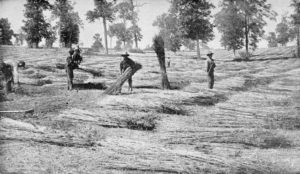CBD and the boom of legal marijuana may be blowing up headlines in daily news, but the history of cannabis and its use in medicine goes way back – try more than 10,000 years back. For centuries people seeking natural medicine, royalty, and medical professionals alike have turned to cannabis for its benefits to health. Despite common misconceptions, CBD itself has only been around for less than 80 years since its discovery in 1940, and it’s not yet fully legal.
A Brief History of Cannabis Throughout the Ages
Some of the first cases of marijuana use can be traced back to what is now the regions of Romania and Taiwan, with evidence dating back 5,000-10,000 years. For hemp use, most of the initial evidence can be traced back to ancient China. From around 6000 BCE and beyond, hemp was used to construct tools, clothing, and shoes, and was also added to food.
It wasn’t until around 2700 BCE that there was a written record of hemp being used as a medicine. Such records revealed that Emperor Shen-Nung of the Sung dynasty developed his own hemp oils, to be used as topical ointments for pain relief.
In the United States, cannabis was widely used as a patent medication during the late 19th and early 20th centuries. Federal restrictions of cannabis use didn’t come about until 1937, with the passage of the Marijuana Tax Act. No longer considered to have medicinal uses, criminal penalties for possession of marijuana and hemp became increasingly standard.
This was especially true following the Boggs and Narcotic Control Acts during the early to mid-1950’s. Such legal restrictions on cannabis (including the Controlled Substances Act of 1970) have contributed to limitations on cannabis research by restricting its availability for academic research.
The Introduction of CBD
In the age of Reefer Madness (released in 1936), cannabis was wrongfully viewed as a highly addictive drug, causing manic side effects and psychiatric disorders such as schizophrenia in its users. Hemp was mistakenly viewed as being just as high-inducing as marijuana, which is one of the widest misconceptions about cannabis that survives to this day. Only until recently, hemp was classified as highly addictive with no medicinal value (a Schedule I drug) – along with marijuana, heroin, and cocaine.
Oddly enough, the team responsible for CBD’s discovery, headed by Roger Adams at the University of Illinois, hadn’t even realized what they had discovered in 1940. It wasn’t until the later years following CBD’s discovery that Adams and his team began to research the cannabinoid and its benefits. Even though CBD was discovered more than 20 years before THC, THC remains the widespread focus of cannabis, and tends to govern the manner in which many people view hemp and cannabis as a whole.
CBD Today

Today, hemp-based CBD can be purchased fairly freely in most states – in various tobacco shops, from online distributors, and in any recreational marijuana dispensary. It’s even possible to obtain hemp-based CBD on amazon, despite their loosely enforced “no CBD” rule. Even so, it is usually of low quality, and you’re better off with products from CBD For Life.
It was a very different world even 100 years ago in regard to cannabis, and we’ve come a very long way since then. For example, you surely couldn’t mail CBD as you can today without serious legal repercussions, as hemp was considered equal to marijuana despite having no mind-altering effects.
Despite some progress, laws are hazy as to CBD’s legality in many ways. Even so, the progression towards freeing hemp’s status as a psychoactive drug is promising. In December 2018, the Farm Bill was passed, enforcing measures that would allow the growth of industrial hemp crops in the United States.
What this Means for CBD

As opposed to much of the sensationalism surrounding the Farm Bill, CBD is not yet fully legalized. Though the bill does remove hemp as a Schedule I drug, this does not extend to CBD, or any cannabinoid which does not comply with the laws outlined in the Farm Bill. According the bill, any cannabinoid derived from hemp is legal only if the product is derived from a hemp crop that complies with federal and state regulations.
Unfortunately, any cannabinoids produced for sale outside of these regulations uphold a Schedule I classification under federal law, and therefore remain illegal under certain state and federal laws. Only one exception is made to this stipulation, for pharmaceutical-grade CBD products. Currently, the only pharmaceutical drug that meets this description is Epidiolex, a newly released CBD medication, used for the treatment of epilepsy.
A Variety of Products
Despite the difficulties in obtaining hemp and marijuana for scientific research, many studies have been conducted on the medicinal benefits of CBD throughout the past few decades. Through such research, it has been found that CBD and pain management go hand-in-hand, which is one of the reasons by which many CBD users seek out various CBD products in the form of tinctures, topical ointments, capsules, waxes, and isolates.
In a growing industry, it is best to research the CBD manufacturer, and ensure their products are trustworthy and completely THC free. For example, CBD for Life ensures all products are THC free and are free of toxic additives. By using such products as CBD for Life’s Phyto cannabinoid Rich Hemp Tincture, you can ensure you’re not only contributing to a trusted manufacturer, but you’re contributing to a high standard of quality in the industry.
In the End…
As the market for CBD grows, so do scientific studies on its medicinal use. As history suggests and as numerous studies continue, multiple sources can vouch for CBD’s low side effect profile and its ability to treat pain and other health-related ailments.
Though the acceptance of CBD for medicinal use has been slow, especially in regard to legal status, the evidence of its medicinal value is undeniable. CBD as an all-natural, plant-based compound, does carry the ability to assist in the management of many illnesses and disorders with no side effects, and may very well be a strong alternative to modern medications.
Resources
https://cbdeducationonline.com/can-cbd-be-mailed/
https://cbdeducationonline.com/best-cbd-hemp-oil-products-on-amazon/
https://cbdeducationonline.com/cbd-and-pain-management/
https://www.ncbi.nlm.nih.gov/pmc/articles/PMC5312634/
http://www.advancedholistichealth.org/history.html
https://www.brookings.edu/blog/fixgov/2018/12/14/the-farm-bill-hemp-and-cbd-explainer/
https://fas.org/sgp/crs/misc/R45275.pdf
The post CBD and Its Complex History appeared first on CBD For Life.

